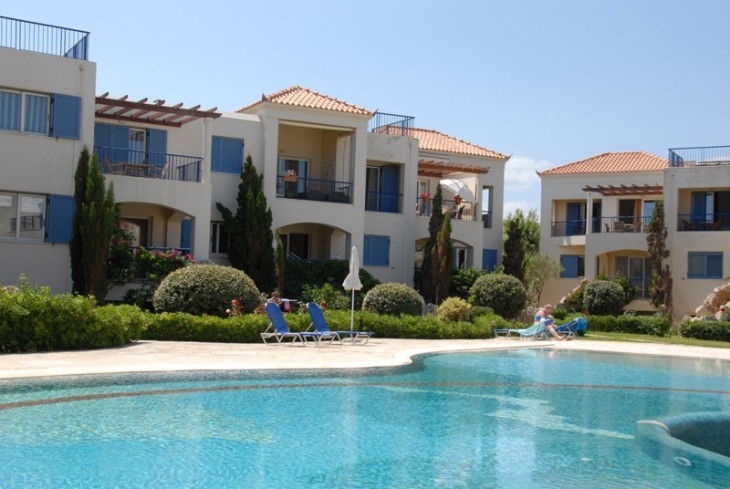GREXIT may be a new word for the 21st century but the idea of writing off debts is not all that new historically speaking. The phrase ‘wiping the slate clean’ apparently dates way back to ancient Egypt when accounts were chalked up on pieces of slate and in cases where a debtor could not repay the money he owed, and was he lucky enough not to be beheaded, his creditors would literally wipe the amount he owned off the slate.
But back to the Grexit. Combining the words Greece and exit, the neologism was coined by two Citigroup analysts in 2012 to describe the potential exit by Greece from the euro, with a return to its old currency, the drachma.
Those who agree with the idea, like my taxi driver in Crete this week, believe that it would dramatically boost exports, as well as tourism, because it would effectively amount to a massive devaluation of the currency. Since prices rose after the Euro was introduced, he thought they would just fall back to the old values, simple. He did not know of the wider implications of default, which those who argue against a Grexit stress; huge hardships for an unknown period of time, civil unrest, political instability and even the alignment of Greece with countries outside the EU, such as Russia.
Yet, all this is already taking place. Strikes, riots, a shaky Radical Leftist government led by Alexis Tsipras and a rapprochement with Russia are all part of the current Greek drama. These (and above all at the moment the latter) have combined to give other Western nations cause for concern other than losing all that money. The word on the street is that Greece must be saved at all costs. Tsripas knows this, and is playing on these fears.
“To lose Greece in these circumstances – and to lose it badly – would be an earthquake,” says the Telegraph’s Ambrose Evans-Pritchard “Yet that is exactly what Greek prime minister Alexis Tsipras evoked in a blistering outburst in Le Monde, more or less threatening an economic and strategic rejection of the West if the creditor powers continue to make “absurd demands”.
Tsipras has already managed to negotiate extensions of the loan repayments. Even if things come to a head, the Grexit will be a slow and heavily stage managed event rather than a sudden default – for which wags incidentally have coined another word, Graccident, meaning accidental Grexit. They’ve also come up with another scenario – that of the Grimbo or Greece in Limbo where neither an Grexit or a Graccident have taken place but the country and its economy have been placed indefinitely in purgatory awaiting some sort of decision from the IMF, European Central Bank and other lenders about debt repayment.
Finally, and fittingly under the circumstances, there’s the Gramlet, or Greek Hamlet, where the country remains in the throes of an existential crisis.
That, on my visit this week, seems to be the most accurate. Greeks have for months been wondering whether to bear the slings of outrageous fortune or end it all somehow. Most of the people to whom I spoke while researching the impact of a possible Grexit on the housing market are paralyzed by indecision and polarised by what they see as unfair treatment by big business.
They blame American banks for creating the 2008 economic crisis and burdening Europe with bad debt. And some see salvation in countries such as Russia and China to whom they now look for hope of doing business. Small communities of Chinese are beginning to settle in Greece. The Russians arrived in Cyprus some years ago and now Chinese are following lured by the 2013 agreement to give economic citizenship to those who buy a property worth Euros 250,000 or more.
“The Chinese love us,” said Haris Menelaou of Leptos Estates who has just sold three houses near Chania to a group of Chinese buyers. “It started with Santorini which they adore, they come for weddings and holidays and have shown an interest in investing. If Greece resolves its political situation we will see real growth.”
Northern Europeans may think it outrageous that the Greeks can walk away from the billions that they owe, but the Greeks, of course, view it differently. Any case, it’s no longer a question of right and wrong, but one of numbers. There is no way that the Greeks can repay their debt mountain even if the economy was growing strongly, which it is not
“All these fraught talks about a release of the last Euros 7.2billion of cash from the current rescue facility can probably be seen as displacement activity,” says BBC economic reporter Robert Peston http://www.bbc.com/news/world-europe-32332221 who adds: “Doesn’t it normally tell you something pretty important about those who owe you money when you have to lend to them so that they can keep up the payments to you?”
“History suggests that at some point the IMF, ECB and eurozone will have to recognise that Greece’s 320bn euros of sovereign debts is a lot of spilled milk that will have to be cleaned up,” he adds.
Or to put it the other way, the slate will have to be wiped clear.

